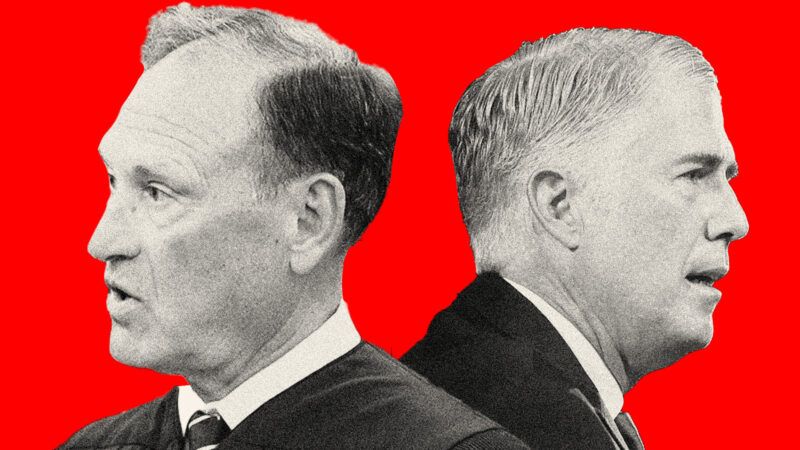Gorsuch and Alito Butt Heads in Another Criminal Justice Case
According to Alito, Gorsuch’s opinion “veered off into fantasy land.”

When Supreme Court Justices Neil Gorsuch and Samuel Alito stand on opposite sides of a criminal justice case, it is safe to assume that criminal justice reform advocates will be cheering for Gorsuch. That maxim certainly held true today in the Court's 7–2 decision in United States v. Taylor.
At issue was whether a conviction for attempted robbery under one federal law, the Hobbs Act, also qualifies as a "crime of violence" under another federal statute, 18 U.S.C. § 924(c)(3)(A). This matters because the additional "crime of violence" designation carries with it a second felony conviction and extra years in prison. Writing for the majority, Justice Gorsuch held that the "crime of violence" designation did not apply.
To qualify as a "crime of violence" under the federal law at issue, the offense must have, according to the statute, "as an element the use, attempted use, or threatened use of physical force against the person or property of another." Justin Taylor was charged with attempted robbery under the Hobbs Act. To secure that conviction, Gorsuch explained in his opinion, "the government must show an intention to take property by force or threat, along with a substantial step toward achieving that object. An intention is just that, no more. And whatever a substantial step requires, it does not require the government to prove that the defendant used, attempted to use, or even threatened to use force against another person or his property." In other words, while an attempted robbery occurred under the Hobbs Act, "no crime of violence" occurred under the terms of 18 U.S.C. § 924(c)(3)(A).
Justices Clarence Thomas and Samuel Alito each dissented from Gorsuch's opinion. Thomas blasted Gorsuch for a soft-on-crime judgment that distorted federal law, is "divorced from reality," and which "threatens public safety." Alito was not exactly complimentary either. "I agree with Justice Thomas that our cases involving §924(c)(3)(A) have veered off into fantasy land," he wrote. Gorsuch's "strict reading of the text," according to Alito, led to an absurd result.
In 2020 I wrote about the growing trend of criminal justice cases dividing the "conservative" judiciary. One of my examples involved Gorsuch and Alito clashing over the meaning of the Fourth Amendment, with Gorsuch advancing an interpretation that would cause the government to lose many more cases than it currently does while Alito countered with a far more deferential stance in favor of prosecutors and police.
Today's dispute over statutory interpretation in a criminal sentencing case represents yet another active front in this ongoing and crucially important judicial battle.
